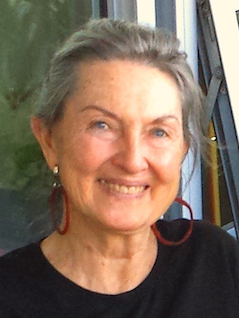Related Research Articles
In environmental philosophy, environmental ethics is an established field of practical philosophy "which reconstructs the essential types of argumentation that can be made for protecting natural entities and the sustainable use of natural resources." The main competing paradigms are anthropocentrism, physiocentrism, and theocentrism. Environmental ethics exerts influence on a large range of disciplines including environmental law, environmental sociology, ecotheology, ecological economics, ecology and environmental geography.
A land ethic is a philosophy or theoretical framework about how, ethically, humans should regard the land. The term was coined by Aldo Leopold (1887–1948) in his A Sand County Almanac (1949), a classic text of the environmental movement. There he argues that there is a critical need for a "new ethic", an "ethic dealing with human's relation to land and to the animals and plants which grow upon it".

J. Baird Callicott is an American philosopher whose work has been at the forefront of the new field of environmental philosophy and ethics. He is a University Distinguished Research Professor and a member of the Department of Philosophy and Religion Studies and the Institute of Applied Sciences at the University of North Texas. Callicott held the position of Professor of Philosophy and Natural Resources at the University of Wisconsin–Stevens Point from 1969 to 1995, where he taught the world's first course in environmental ethics in 1971. From 1994 to 2000, he served as vice president then president of the International Society for Environmental Ethics. Other distinguished positions include visiting professor of philosophy at Yale University; the University of California, Santa Barbara; the University of Hawaiʻi; and the University of Florida.

Janet Radcliffe Richards is a British philosopher specialising in bioethics and feminism and Professor of Practical Philosophy at the University of Oxford. She is the author of The Sceptical Feminist (1980), Philosophical Problems of Equality (1995), Human Nature after Darwin (2000), and The Ethics of Transplants (2012).
The ethics of care is a normative ethical theory that holds that moral action centers on interpersonal relationships and care or benevolence as a virtue. EoC is one of a cluster of normative ethical theories that were developed by some feminists and environmentalists since the 1980s. While consequentialist and deontological ethical theories emphasize generalizable standards and impartiality, ethics of care emphasize the importance of response to the individual. The distinction between the general and the individual is reflected in their different moral questions: "what is just?" versus "how to respond?" Carol Gilligan, who is considered the originator of the ethics of care, criticized the application of generalized standards as "morally problematic, since it breeds moral blindness or indifference".

Val Plumwood was an Australian philosopher and ecofeminist known for her work on anthropocentrism. From the 1970s, she played a central role in the development of radical ecosophy. Working mostly as an independent scholar, she held positions at the University of Tasmania, North Carolina State University, the University of Montana, and the University of Sydney, and at the time of her death was Australian Research Council Fellow at the Australian National University. She is included in Routledge's Fifty Key Thinkers on the Environment (2001).

Michael E. Zimmerman is an American philosopher, integral theorist, author, and academic. He is a Professor Emeritus of Philosophy for Tulane University and University of Colorado at Boulder.

Ariel Salleh is an Australian sociologist who writes on humanity-nature relations, political ecology, social change movements, and ecofeminism.
Greta Gaard is an ecofeminist writer, scholar, activist, and documentary filmmaker. Gaard's academic work in the realms of ecocriticism and ecocomposition is widely cited by scholars in the disciplines of composition and literary criticism. Her theoretical work extending ecofeminist thought into queer theory, queer ecology, vegetarianism, and animal liberation has been influential within women's studies. A cofounder of the Minnesota Green Party, Gaard documented the transition of the U.S. Green movement into the Green Party of the United States in her book, Ecological Politics. She is currently a professor of English at University of Wisconsin-River Falls and a community faculty member in Women's Studies at Metropolitan State University, Twin Cities.
Ecological art is an art genre and artistic practice that seeks to preserve, remediate and/or vitalize the life forms, resources and ecology of Earth. Ecological art practitioners do this by applying the principles of ecosystems to living species and their habitats throughout the lithosphere, atmosphere, biosphere, and hydrosphere, including wilderness, rural, suburban and urban locations. Ecological art is a distinct genre from Environmental art in that it involves functional ecological systems-restoration, as well as socially engaged, activist, community-based interventions. Ecological art also addresses politics, culture, economics, ethics and aesthetics as they impact the conditions of ecosystems. Ecological art practitioners include artists, scientists, philosophers and activists who often collaborate on restoration, remediation and public awareness projects.
Feminist ethics is an approach to ethics that builds on the belief that traditionally ethical theorizing has undervalued and/or underappreciated women's moral experience, which is largely male-dominated, and it therefore chooses to reimagine ethics through a holistic feminist approach to transform it.

Alice Crary is an American philosopher who currently holds the positions of University Distinguished Professor at the Graduate Faculty, The New School for Social Research in New York City and Visiting Fellow at Regent's Park College, University of Oxford, U.K..
Lori Gruen is an American philosopher, ethicist, and author who is the William Griffin Professor of Philosophy at Wesleyan University in Middletown, Connecticut. Gruen is also Professor of Science in Society, and Professor of Feminist, Gender and Sexuality Studies at Wesleyan.

Elizabeth Secor Anderson is an American philosopher. She is Arthur F. Thurnau Professor and John Dewey Distinguished University Professor of Philosophy and Women's Studies at the University of Michigan and specializes in political philosophy, ethics, and feminist philosophy.
Margaret Urban Walker is an American philosopher and academic who is the Donald J. Schuenke Chair Emerita in Philosophy at Marquette University. Before her appointment at Marquette, she was the Lincoln Professor of Ethics at Arizona State University, and before that she was at Fordham University. She has also previously held visiting appointments at Washington University in St. Louis, University of South Florida, and Catholic University of Leuven.
Anita Superson is a professor of philosophy at the University of Kentucky. She was also the visiting Churchill Humphrey and Alex P. Humphrey Professor of Feminist Philosophy at the University of Waterloo during the winter term of 2013.

Ecofeminism is a branch of feminism and political ecology. Ecofeminist thinkers draw on the concept of gender to analyse the relationships between humans and the natural world. The term was coined by the French writer Françoise d'Eaubonne in her book Le Féminisme ou la Mort (1974). Ecofeminist theory asserts a feminist perspective of Green politics that calls for an egalitarian, collaborative society in which there is no one dominant group. Today, there are several branches of ecofeminism, with varying approaches and analyses, including liberal ecofeminism, spiritual/cultural ecofeminism, and social/socialist ecofeminism. Interpretations of ecofeminism and how it might be applied to social thought include ecofeminist art, social justice and political philosophy, religion, contemporary feminism, and poetry.
Feminist justice ethics is a feminist view on morality which seeks to engage with, and ultimately transform, traditional universal approaches to ethics. Like most types of feminist ethics, feminist justice ethics looks at how gender is left out of mainstream ethical considerations. Mainstream ethics are argued to be male-oriented. However, feminist justice ethics does differ considerably from other feminist ethics. A universal set of ethics is a significant part of feminist justice ethics. Feminist justice ethics is clear in dividing "thick" morality from "thin" morality. Other ethical approaches that define themselves by differentiating groups from one another through culture or other phenomena are regarded as "thick" accounts of morality. Feminist justice ethics claims that "thick" accounts of morality, as opposed to "thin" accounts of morality, are intrinsically prone to eroding valid feminist critique.

Samantha J. Brennan is a British-born philosopher and scholar of women's studies who is currently dean of the College of Arts and faculty member in the Department of Philosophy at the University of Guelph. She was previously a professor in the Department of Women's Studies and Feminist Research at Western University, Canada. She remains a member of Western's Rotman Institute of Philosophy and the graduate faculty of the Departments of Political Science and of Philosophy. Brennan was Department Chair of Philosophy at Western from 2002 to 2007, and 2008–2011. She is a past president of the Canadian Philosophical Association (2017–18).
Ecofeminism generally is based on the understanding that gender as a concept is the basis of the human-environment relationships. Studies suggest that there's a difference between men and women when it comes to how they treat nature, for instance, women are known to be more involved with environmentally friendly behaviors. Socially there's an important claim in the ecofeminism theoretical framework that the patriarchy is linked to discrimination against women and the degradation of the environment. In Canada the United Nations Special Rapporteur on Human Rights and Toxics in 2020 shows that ineffective environmental management and mismanagement of hazardous waste is affecting different age groups, genders, and socioeconomic status in different ways, while three years before that, Canadian Human Rights Commission in 2017 submitted another report, warning the government about how the exposure to environmental hazards is a different experience for minorities in Canada. There have been ecofeminist movements for decades all over Canada such as Mother's Milk Project, protests against Uranium mining in Nova Scotia, and the Clayoquot Sound Peace Camp. Ecofeminism has also appeared as a concept in the media, such as books, publications, movies, and documentaries such as the MaddAddam trilogy by Margaret Atwood and Fury for the Sound: the women at Clayoquot by Shelley Wine. Ecofeminism in the Canadian context has been subject to criticism, especially by the Indigenous communities as they call it cultural appropriation, non-inclusive, and inherent in colonial worldviews and structures.
References
- 1 2 "Chris Cuomo". University of Georgia. Retrieved 24 August 2013.
- 1 2 3 4 5 6 7 8 Cuomo, Chris. "November/December 2012: Chris Cuomo". Highlighted Philosophers. American Philosophical Association. Retrieved 24 August 2013.
- ↑ "Environmentalist talks about eco-feminism and climate change". Appalachian State University News. 12 March 2013. Archived from the original on 31 August 2013. Retrieved 24 August 2013.
- 1 2 Bartsch, Ingrid (2001). "Feminism and Ecological Communities: An Ethic of Flourishing by Chris J. Cuomo; Ecofeminist Natures: Race, Gender, Feminist Theory and Political Action by Noël Sturgeon (Review)". Hypatia. 16 (2): 109–111. doi:10.1353/hyp.2001.0016. JSTOR 3810553. S2CID 145684448.
- ↑ J. Warren, Karen (Winter 2001). "Feminism and Ecological Communities: An Ethic of Flourishing by Chris J. Cuomo; Feminism and Ecology by Mary Mellor; Life and Death Matters: Human Rights and the Environment at the End of the Millennium by Barbara Rose Johnston (Review)". Signs. 26 (2): 610–614. doi:10.1086/495620. JSTOR 3175469.